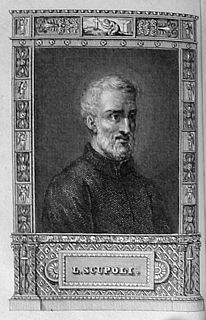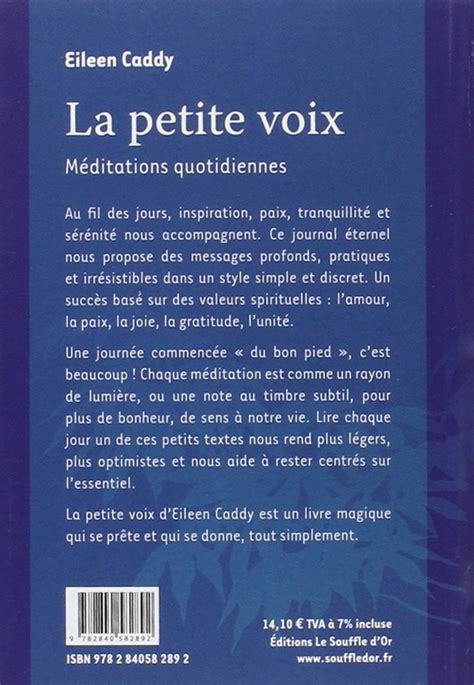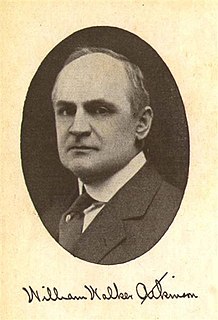A Quote by Hazrat Inayat Khan
The peace for which every soul strives and which is the true nature of God and the utmost goal of a man is but the outcome of harmony.
Related Quotes
Watch yourself with all diligence, lest the enemy steals near and robs you, depriving you of this great treasure, which is inner peace and stillness of soul. The enemy strives to destroy the peace of the soul, because he knows that when the soul is in turmoil it is more easily led to evil. But you must guard your peace.
For those who feel it, nothing makes the soul so religious and pure as the endeavor to create something perfect; for God is perfection, and whoever strives after it, is striving after something divine. True painting is only the image of the perfection of God, a shadow of the pencil with which he paints, a melody, a striving after harmony.
There is that in the soul of man which must respond to the highest in virtue. It may not respond at once. Human nature can easily be over-faced by examples too remote and austere. Moreover, human nature can easily deny God because the whole race has long been in rebellion against Him. Yet there is that in human nature which calls out to the supreme examples of virtue: owns, as it were, the intention of God who made it, and feels the unmistakable homesickness of the soul.
Generally there is in man a divinity which strives to push him onward and upward. We believe that this power within him is the spirit that comes from God. Man lived before he came to this earth, and he is here now to strive to perfect the spirit within. At sometime in his life, every man is conscious of a desire to come in touch with the Infinite. His spirit reaches out for God. This sense of feeling is universal, and all men ought to be, in deepest truth, engaged in the same great work—the search for and the development of spiritual peace and freedom.
Man is the only animal who does not feel at home in nature, who can feel evicted from paradise, the only animal for whom his own existence is a problem that he has to solve and from which he cannot escape. He cannot go back to the prehuman state of harmony with nature, and he does not know where he will arrive if he goes forward. Man's existential contradiction results in a state of constant disequilibrium. This disequilibrium distinguishes him from the animal, which lives, as it were, in harmony with nature.
In every remodelling of the present, the existing condition of things must be supplanted by a new one. Now every variety of circumstances in which men find themselves, every object which surrounds them, communicates a definite form and impress to their internal nature. This form is not such that it can change and adapt itself to any other a man may choose to receive; and the end is foiled, while the power is destroyed, when we attempt to impose upon that which is already stamped in the soul a form which disagrees with it.
God felt, God tasted and enjoyed is indeed God, but God with those gifts which flatter the soul, God in darkness, in privation, in forsakenness, in sensibility, is so much God, that he is so to speak God bare and alone. Shall we fear this death, which is to produce in us the true divine life of grace?
There is a Reality which is Indivisible, One, Alone, the Source and Being of all; not a thing, nor even a mind, but pure Spirit or clear Consciousness; and we are That and nothing but That, for That is our true Nature; and the only way to find It is to look steadily within, where are to be found utmost peace, unfading joy, and eternal life itself.
May we not have a picture of Christ, who has a true body? By no means; because, though he has a true body and a reasonable soul, John 1:14, yet his human nature subsists in his divine person, which no picture can represent, Psalm 45:2. Why ought all pictures of Christ to be abominated by Christians? Because they are downright lies, representing no more than the picture of a mere man: whereas, the true Christ is God-man
The disembodied soul does not part with Nature when it leaves the earth; life but, rather, it rises to a plane of Nature which is fuller, richer and sweeter in every way than the best of which the earth dwelling soul dreams. The dross of materiality burned away by the astral vibrations, the soul blossoms and bears spiritual fruit in the new life.
My idea of the Christian religion is, that it is an inspiration and its vital consequences--an inspiration and a life--God's life breathed into a man and breathed through a man--the highest inspiration and the highest life of every soul which it inhabits; and, furthermore, that the soul which it inhabits can have no high issue which is not essentially religious.






































